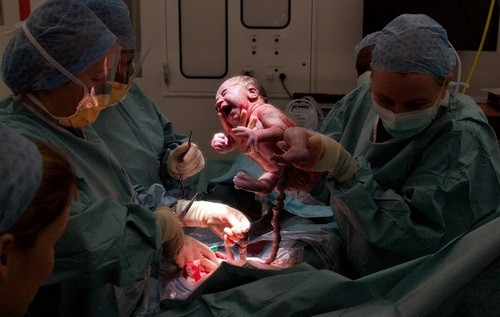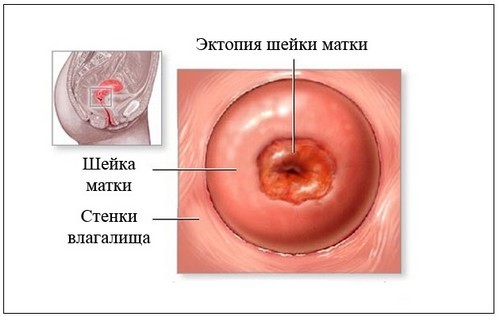Waiting for a baby is perhaps the most exciting time in a woman’s life. So many worries and plans for the future. But the main subject of experiences of the future mother remains the upcoming birth. It’s great if the girl is in good health and there are no pathologies.
But what if the doctors recommend a cesarean section to resolve the pregnancy? The question, of course, is complicated, because surgical intervention can hardly be called a natural process.
Despite the fact that there are numerous disputes over this difficult operation, it has recently gained considerable popularity. No pain during childbirth, painful fights and long hours of waiting – these are the reasons women are guided by agreeing to surgery.
But it is worthwhile to understand that such an operation has its consequences for both the baby and the mother. In addition, despite the professionalism of doctors, various complications can arise both during cesarean and in the postoperative period: bleeding, infections, poor healing of the suture, trauma to connective tissues and many others.
Anesthesia – danger exists
If you decide to have a cesarean section, it is worth noting that the first danger may lie in wait for you during the procedure.
The fact is that modern medicine offers two types of anesthesia:
- General anesthesia.
- Epidural and spinal anesthesia.
However, each of these types of anesthesia can lead to unpleasant consequences of cesarean section. Therefore, you should seriously think about what type of procedure to choose, because it affects not only the woman in labor, but also the baby. Upon exit from general anesthesia, a woman may feel: a sharp headache, nausea, dizziness, muscle pain, confusion. When conducting epidural anesthesia, serious damage to the spinal cord and nerve endings can occur, in addition, there is a sharp pain in the back, trembling in the limbs.

Possible risks
Remember, each operation carries a certain risk to the person. The most common consequence of cesarean section for the mother is considered an infection that can penetrate when doctors intervene. Bleeding and blood clots are also dangerous. In rare cases, due to the lack of professionalism of doctors, injuries to neighboring organs and tissues occur. Many note that after surgery there may be problems with intestinal patency, and as a result, a woman in labor will suffer from constipation and experience pain. There are cases when surgeons seriously damaged the patient’s bladder.
Stitches after surgery
Unfortunately, no operation is possible without seams and scars. But the problem lies deeper: an aesthetic defect fades into the background. Indeed, in our time it is easy to get rid of such “marked”, by grinding and special treatment. However, diastasis can occur in a woman in labor, in which the edges of the suture diverge and do not heal well. In this case, you should immediately consult a doctor.
But the suture on the uterus requires much more attention – because the success of the following pregnancies will depend on his condition. One of the most unpleasant consequences after cesarean section, probably, can be called a ban on conception for the next 2-3 years. This also applies to the abortion procedure – it is not advisable to carry out it. Doctors say that during this period it is impossible to prevent damage or injuries to the walls of the uterus, in order to avoid divergence of the suture. If these recommendations are not followed, the risk of miscarriage and the development of a number of diseases is increased.
Physical recovery
Despite the fact that childbirth during surgery is painless, mom will face major problems in the postoperative period. The fact is that a woman needs almost 1.5-2 months to fully recover from surgery.
And such restrictions bring serious inconvenience:
- In the early days it is very difficult to care for the baby.
- You can not take a bath (prefer a shower).
- Do not overstrain physically – training, weight lifting, running are prohibited.
- Intimate life requires restrictions – sex is possible only 5-6 weeks after giving birth. Be sure to consult your doctor if your body is ready for sex after surgery. In addition, it is worth resorting to reliable contraception. It is necessary to exclude pregnancy during the next couple of years.
Menstrual cycle
If the cesarean section was successful, mom should not worry – menstruation will come at about the same time as during natural childbirth. But the absence of this “event” may indicate the onset of complications. In such a situation, it is necessary to undergo examination by a gynecologist. Note that sometimes the restoration of the cycle can be from 3 to 6 months, depending on the complications that arise after cesarean section. More about menstruation after cesarean section?
Breast-feeding
Many mothers do not want to have surgery, fearing that they will lose the opportunity to breastfeed their child. There is a rational “grain” in this – right after surgical intervention, the baby is not applied to the breast, for fear of getting the drugs in milk. They can cause serious harm to the child. But the problem is that they begin to feed the baby from the bottle, after which he is in no hurry to take the mother’s breasts. Do not overwork and make efforts to “extract” milk when the baby refuses to breast-feed. If mommy is patient and persistent, practicing several times a day in natural feeding, the baby will soon take a breast.
Implications for the baby
Unfortunately, the operation does not pass without a trace, not only for the mother, but also for the baby. When the time comes to be born, the so-called period of hypernation begins – the state of the fetus, in which he “falls asleep”, adapting to the upcoming passage through the birth canal. All physiological processes slow down, becoming more “economical” for the body. Such a mechanism is a natural process invented by nature in order to protect the baby from severe stress during a sharp pressure drop during birth.

With cesarean section, the consequences are completely different: the baby does not undergo preparation, but is immediately subjected to incredible pressure. Such a process can lead to the formation of microbleeds in the brain. There are also cases of decreased brain activity in Caesars. American scientists say that if an adult had to experience pressure during a cesarean section, he would simply die from pain shock. Another problem for such children may be getting into the bloodstream of drugs that are used to anesthetize the mother. They are able to negatively affect the nervous activity of the baby, cause problems with the heart and intestinal tract.
First sigh
Based on many studies, doctors made an important conclusion: performing a cesarean section is fraught with consequences for the child. Before the moment of birth, the number of hormones – catecholomines – sharply increases in children. It is these substances that trigger the breathing process and “drain” the lungs from the fluid. During surgery, such a process simply does not occur and the risk of suffocation increases, the lungs of the child open with difficulty.
The heart of a small person begins to work very quickly, trying to provide the lungs with blood, and there is fluid there. Due to this process, the baby may develop dystrophic atrophy in the heart, as in the elderly. The respiratory rate of “Caesarean” is almost 2 times less than that of naturally born.
Another theory says: the child does not pass through the birth canal, and as a result, there is no compression of the chest. It is this pressure that helps get rid of amniotic fluid in the lungs.
Psychological component
There is a theory that has not found its practical confirmation: babies who were born during surgery are much more difficult to adapt to the world. It is believed that the so-called stress hormone has not been developed and the baby simply does not know how to adapt to new conditions. But scientists say that psychological health is more dependent on education than on the method of birth. Often such children suffer from excitability and hypertonicity.
Features of care for babies “Caesars”
Doctors recommend giving “Caesars” special attention in the first months of life:
- With such children it is recommended to start walking on the street later. They need to be swaddled for a longer time than ordinary babies. It is impossible to prevent hypothermia or, conversely, elevated temperatures.
- Due to the fact that children can suffer from hyperactivity, they sleep worse at night, often cry and get scared for no reason.
- It is recommended that in the first month of life, the child sleep with his mother, so he quickly adapts to the outside world.
- “Caesar’s” are gaining weight very slowly, so you need to breastfeed as long as possible.
- To strengthen the immune system, it is recommended to perform daily gymnastics, gradually increasing physical activity. Be sure to attend water procedures: swimming, and then hardening the child.
It is not only the expectant mother who decides to do or not do the operation, but also the doctor. But do not think that cesarean section is an easy procedure that is not able to harm you and your child. However, if there are serious risks to the life of the mother or baby, it will be better and safer to carry out such an operation.



